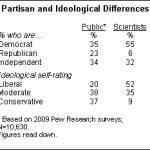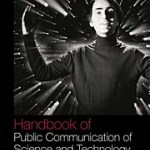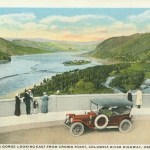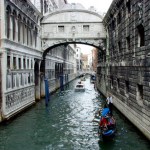science studies
Nick pointed me to a fabulous podcast series by CBC radio called "How To Think About Science." Each episode is a long and fascinating interview with a prominent scholar of science--scientists, philosophers, sociologists, anthropologists, and historians who explore how science is done, how scientists work, and how scientific ideas and facts are communicated. Check it out!
Held in over 30 countries, the World Wide Views on Global Warming initiative represents the state-of-the-art in new approaches to public engagement, the subject of several recent reports and meetings. This video features a short documentary on the Australian event.
Over the weekend, my friend Chris Mooney contributed an excellent op-ed to the Washington Post pegged to an American Academy of Arts and Sciences event yesterday. The op-ed previewed a longer essay by Chris released at the event in which he described some of the major themes expressed in the transcripts of three meetings convened…
Daniel Sarewitz, professor of science policy at Arizona State University, has an important op-ed at Slate today explaining why if we continue to frame the climate change debate in terms of science, we may never achieve meaningful policy action. Drawing on the conclusions of much of the scholarship in the area of science studies, Sarewitz writes:
When people hold strongly conflicting values, interests, and beliefs, there is not much that science can do to compel action. Indeed, more research and more facts often make a conflict worse by providing support to competing sides in the debate, and…
Last week the NSF Science Indicators report was released, triggering more dramatic calls to action and overstated warnings from commentators about the alleged decline of science in American society. This predictable reaction is part of a decades enduring "fall from grace narrative" about the place of science in American society, a distracting if not harmful myth that I discussed in a co-authored article with Dietram Scheufele published earlier this year.
Since Sputnik, each decade has spawned a novel form of this American jeremiad, whether it be the Cold War race against the Russians,…
Last month, I did an interview with the Philadelphia City Paper on the stolen CRU emails. The feature story provides useful background and context on the communication dynamics of the event. Yet in organizing these details and assembling quotes, the reporter applies a now dominant narrative that the controversy is the latest sign of the growing strength of the climate skeptic movement, a movement fueled by the "anti-science" hostility of American society.
The moral lesson of this narrative, told by liberal commentators and reflected at mainstream outlets and various science media, argues…
Slides and synchronized video of the presentations from the AGU panel "Re-Starting the Conversation on Climate Change: The Media, Dialogue, and Public Engagement Workshop" are now online. Below I link to each of the presentations highlighting key themes or conclusions and the minute mark in the video.
Mass Media and the Cultural Politics of Climate Change
Max Boykoff, Ph.D.
University of Colorado-Boulder
Mass media serve vital roles in the communication processes between science, policy-makers and the public. This presentation reviews contextual factors as well as journalistic pressures…
I've been busy the past week with wrapping up the semester. As a consequence, I have not had the chance to post about continuing developments related to the stolen emails from servers at University of East Anglia's Climatic Research Unit (CRU).
However, today is a convenient time to weigh in, since I share many of the same conclusions offered by Mike Hulme in recent op-eds at the BBC and Wall Street Journal.
Before discussing the Hulme articles, let me relay a few observations. Since the stolen email story broke, my concern has been that many bloggers and commentators are overlooking the…
Last year I gave a strong recommendation to the CBC series by David Caylay "How to Think about Science" which provides listeners with a fascinating introduction to the field of science studies. Now it turns out that the series will be available in book form this October, with the interviews appearing as essays or transcripts. See Amazon for more details.
I recently received copies of two relatively new edited volumes on science communication and public engagement. The volumes include research and perspectives from an interdisciplinary collection of mostly European scholars. I am preparing a review essay on these books for the journal Political Communication, drawing connections to research on policy debates, communication influences, and citizen engagement generally. I will post a draft of this review when complete. In the meantime, these twin volumes are strongly recommended, and are perhaps the best introduction to the major issues in…
At the WPost today, Dan Morgan contributes an excellent analysis of what he calls the "agracrats," Democratic members of Congress from traditional farm states such as Iowa or Minnesota. As Morgan notes, these representatives have been an influential force in first opposing and then fundamentally altering climate change legislation, fearing as Morgan describes that "the cap and trade measures would increase fuel and fertilizer costs for farmers, hurt coal-burning rural electric utilities and leave the Midwest's thriving biofuels industry vulnerable to regulatory restrictions by the…
As I noted last week, the Pew survey of scientists finds that more than 50% self-identify as liberals compared to just 20% of the public.
Which then leads to the question: what role does ideology play in shaping scientists' policy preferences relative to science, especially in those areas outside of their specialty? Or on those issues where there are high levels of uncertainty about risks, benefits, and trade-offs? Heuristic decision-making is common in politics and policymaking, are scientists as a group any different?
Put another way, in responding to the Pew findings, several commentators…
When I was in graduate school at Cornell, David Kirby was a course mate while he was working on a post-doc in science studies. Kirby was re-training from his former field as a geneticist, researching the influence of science consultants on major motion pictures.
One of his conclusions--published in a paper at the Social Studies of Science--was that science consultants are important to filmmakers because they can help lend a sense of realism and perceived legitimacy to a film, especially among the opinion-setting audience base who shape the success of a film via word-of-mouth and online buzz…
In this month's issue of Nature Biotechnology, I join with other authors to suggest several bold new initiatives in science communication and journalism. The Commentary article includes an overview of key issues and trends in the field and closes with a series of specific recommendations.
The article is based on a workshop held this past year in Washington, DC, organized by Timothy Caulfield and Tania Bubela of the Health Law Institute at the University of Alberta. The authors reflect the participants in that workshop and include representatives from the U.S., Canada, the U.K., Germany and…
I spent the past three days with my colleague Ed Maibach and several graduate students conducting one-on-one interviews about climate change with participants recruited and screened from among the diversity of visitors to the National Mall in Washington, DC.
In conducting these qualitative interviews--which varied in time between 30 minutes to more than an hour--I was amazed at the forms of localized knowledge and depth of reasoning that participants from different educational backgrounds and with varying political views brought to the topic of climate change.
The experience reflected…
Night at Smithsonian topped the Box Office this Memorial Day weekend with a smash opening of more than $70M outpacing Terminator Salvation which scored a $43M debut.
Museum directors and science educators are sure to be looking to ride the movie's success with efforts to broaden their reach in terms of attendance and community engagement. Yet the adventure and the joy of a museum experience, captured so well in Ben Stiller's "Night at..." fantasy series, leaves open the question of what we exactly learn about science when visiting a museum and just as importantly, how we learn.
That was…
I did an interview this morning with Elie Dolgin of The Scientist magazine discussing the "going broad" media strategy surrounding Darwinius masillae aka Ida the fossil. The magazine has the Q&A interview up on their site. The user registration is free and well worth the 2 seconds in order to access the wealth of content at the magazine's Web site.
Below are my comments. As I've noted, this week's events will serve as a long standing case study for science communication scholars and professionals to analyze and debate.
The Scientist: How unusual is this amount of media attention for a…
The BiPartisan Policy Center has announced a Blue Ribbon panel that will issue recommendations intended to inform Obama's call for a Memorandum on Scientific Integrity.
Importantly, the panel will study and address an important theme that continues to re-occur in the so-called "science wars": what is the dividing line between where science ends and policymaking begins? Or as I blogged earlier today, what is the demarcation between the first and second premise in compelling policy action?
From the press release to the interim report issued today:
The report's premise is that "a critical goal…
At The Three Cultures Summit on Climate Change, What Scientists Want to Learn From Social Scientists
I'm spending the weekend in Oregon at an outpost on the edge of the Columbia River Valley. I'm in town for a unique three cultures summit on climate change, a workshop that brings together scientists, social scientists, philosophers, poets, and artists to discuss strategies and methods for public engagement and communication.
This afternoon we broke into separate disciplinary groups and embarked on a short hike to reflect on what we would like to learn from the other disciplines. When we returned, I jotted down the following notes on what scientists said they would most like to learn or…
Day two of the expert workshop on science communication at the Venice Institute of Science & Arts focused more narrowly on the question of defining and evaluating forms of science communication including journalism, institutional outreach, advertising and marketing, entertainment programming, digital media, policy campaigns, and public engagement initiatives such as consensus conferences or deliberative forums. (The workshop was organized by Massimiano Bucchi, professor of sociology of science at University of Trento, Italy, where he chairs the Science & Society Programme)
Many…
In a recent episode (podcast) of the CBC series "How to Think About Science," here's how Harvard historian of science Steven Shapin answers that question:
I believe of course that there are facts of the matter, independent of our culture, independent of our social order, independent of our language, but I believe that at the same time when we make statements of fact, those statements of fact, belong to our culture. So I believe completely that there is a world independent of our thoughts, but when we start to represent that world, we are talking about cultural entities, what else could they…



